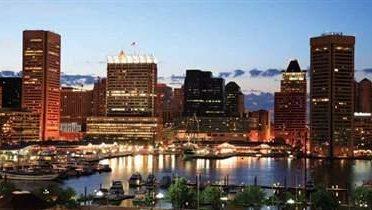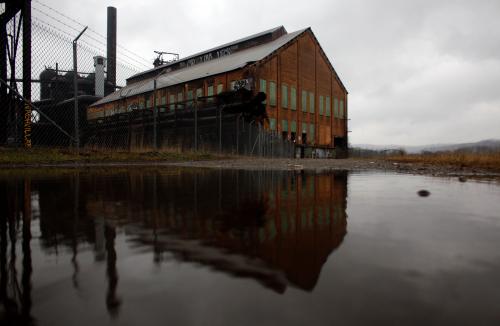According to many broad economic indicators, the Baltimore metropolitan area is doing better than fine. In 2010, the median household income for the region was nearly $15,000 higher than for the country at large, and over the 10 years prior, real incomes rose in the metro, if slowly, even while incomes nationally shrank by more than 7 percent. Employment grew from 2000 to 2010 while declining nationwide, and during the economic downturn, the area’s unemployment rate was consistently lower than the majority of its metropolitan peers.
Yet anyone who lives and works in greater Baltimore knows the region is also home to many families and neighborhoods challenged by varying levels of economic and social distress. Although only about 10 percent of the region’s residents are considered poor, nearly a quarter are low-income, meaning they are part of a family with a total income that is below 200 percent of the federal poverty line. Yet the regional economy hums along, baring the somewhat disquieting truth that a good economy for most can be had even while many aren’t reaping its benefits. Efforts and ideas to change this paradigm abound. The public, non-profit, and philanthropic sectors— in Baltimore and throughout the country— spend billions each year trying to help fill the gap between what a household can afford and what it actually takes to pay for basic needs. As critical as these interventions are, however, they are not targeted at expanding opportunity—that is, making greater numbers of middle-wage jobs available and accessible to those who want to get ahead—as much as trying to compensate for the fact that there isn’t enough of it. This report proposes a different approach, one simultaneously focused on investing in efforts to grow a more opportunity-rich “next economy” and helping low-income residents gain the education, skills, and other capacities needed to participate in it. To this end, it advances three primary messages:
- Greater Baltimore is not generating enough quality jobs, and low-income people aren’t accessing them.
- Greater Baltimore has significant assets on which to build a more opportunity-rich next economy, but they aren’t being fully exploited.
- Greater Baltimore needs to focus both on investing in the next economy and ensuring low-income people are connected to it.
The Brookings Institution is committed to quality, independence, and impact.
We are supported by a diverse array of funders. In line with our values and policies, each Brookings publication represents the sole views of its author(s).




